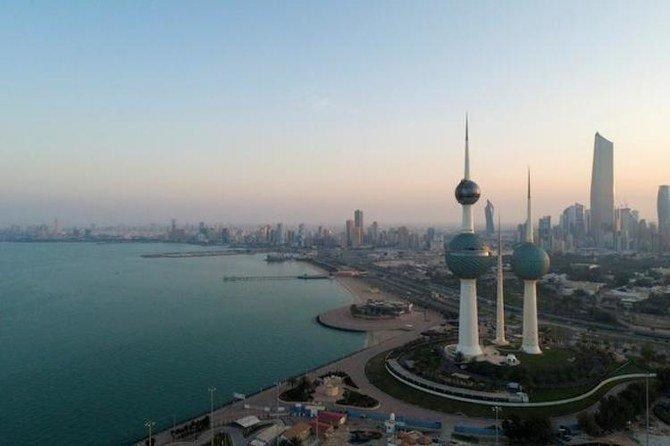DUBAI: Ratings agency S&P Global Ratings cut Kuwait’s rating by one notch citing the Gulf state’s lack of a funding strategy to finance its deficit.
Hit hard by lower oil prices and the COVID-19 pandemic last year, Kuwait faces liquidity risks largely because parliament has not authorized government borrowing due to a standoff.
S&P cut Kuwait’s rating by one notch to A+ from AA- and kept its outlook on the country negative, it said in a statement late on Friday.
“The downgrade reflects a persistent lack of a comprehensive funding strategy despite the central government’s ongoing sizeable deficits,” it said.
“Due to parliamentary opposition, the government has so far been unable to pass a law giving it the authority to issue debt or gain immediate access to its large stock of accumulated assets.”
S&P expects central government deficits to average 17 percent of gross domestic product annually between 2021 and 2024. In the fiscal year that ended in March, the country ran a central government deficit of 33 percent of GDP, S&P estimated.
Despite a sluggish pace of reforms, the agency said it still expected Kuwait to eventually adopt a debt law that would allow the government to borrow or overcome parliamentary opposition to gain access to funding alternatives.
S&P had already cut the rating of the OPEC member state last year due to lower oil prices.
Oil-rich Kuwait is the only Gulf monarchy to give substantial powers to an elected parliament, which can block laws and question ministers.
Frequent rows between the cabinet and assembly have led to successive government reshuffles and dissolutions of parliament over decades, hampering investment and reforms.
S&P cuts Kuwait rating on lack of deficit-financing strategy
https://arab.news/rmdek
S&P cuts Kuwait rating on lack of deficit-financing strategy

- Rating cut one notch to A+ from AA-; outlook remains negative
- S&P expects deficits to average 17 percent of GDP from 2021 to 2024
Closing Bell: Saudi main market sheds 85 points to finish at 11,098

RIYADH: Saudi Arabia’s Tadawul All Share Index closed lower in the latest session, falling 85.79 points, or 0.77 percent, to finish at 11,098.06.
The MSCI Tadawul 30 Index declined 0.63 percent to close at 1,495.23, while the parallel market index Nomu dropped 0.91 percent to 23,548.56.
Market breadth was firmly negative, with 42 gainers against 218 decliners on the main market. Trading activity saw 226 million shares exchanged, with total turnover reaching SR4.5 billion ($1.19 billion).
Among the session’s gainers, Tourism Enterprise Co. rose 9.40 percent to SR15.02. SHL Finance Co. advanced 4.51 percent to SR16.00, while Almasar Alshamil for Education Co. gained 3.56 percent to SR23.88.
Dar Alarkan Real Estate Development Co. added 3.03 percent to SR19.70, and Banque Saudi Fransi climbed 2.61 percent to SR19.30.
On the losing side, Almasane Alkobra Mining Co. recorded the steepest decline, falling 6.61 percent to SR96.
Al Moammar Information Systems Co. dropped 5.14 percent to SR164.20, while National Company for Learning and Education declined 4.60 percent to SR124.30. Saudi Ceramic Co. slipped 4.14 percent to SR27.30, and Arabian Contracting Services Co. fell 4.12 percent to SR116.50.
On the announcement front, Saudi Telecom Co. announced the distribution of interim cash dividends for the fourth quarter of 2025 in line with its approved dividend policy.
The company will distribute SR2.74 billion, equivalent to SR0.55 per share, to shareholders for the quarter.
The number of shares eligible for dividends stands at approximately 4.99 billion shares. The eligibility date has been set for Feb. 23, with distribution scheduled for March 12.
The company noted that treasury shares are not entitled to dividends and that payments will be made through Riyad Bank via direct transfer to shareholders’ bank accounts. stc shares last traded at SR44.80, unchanged on the session.
Separately, National Environmental Recycling Co., known as Tadweer, reported its annual financial results for the year ended Dec. 31, 2025, posting significant growth in revenue and profit.
Revenue rose 53.5 percent year on year to SR1.24 billion, compared with SR806 million in the previous year. Net profit attributable to shareholders increased 68.4 percent to SR60.9 million, up from SR36.2 million a year earlier, driven by higher sales volumes and operational expansion.
Tadweer shares last traded at SR3.80, up 2.70 percent.















